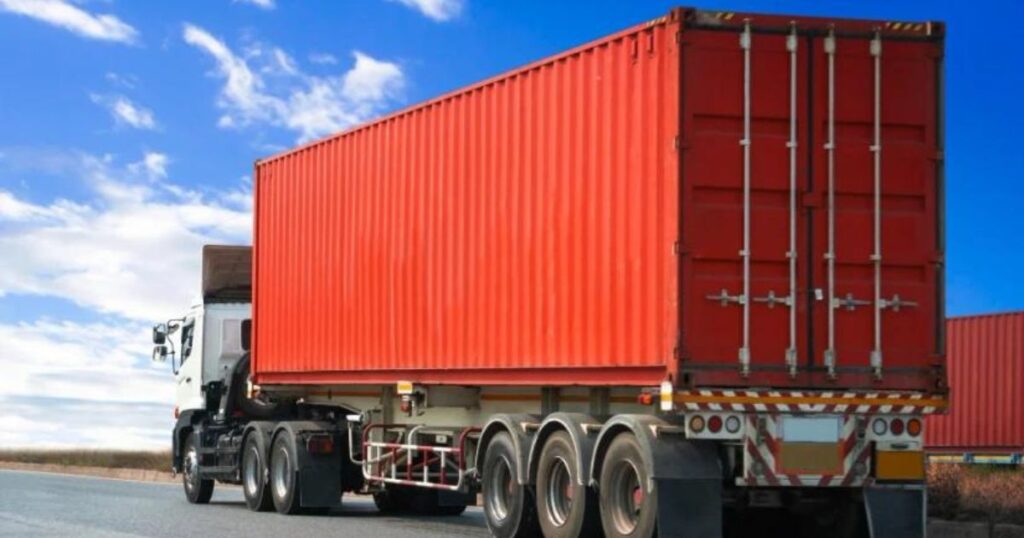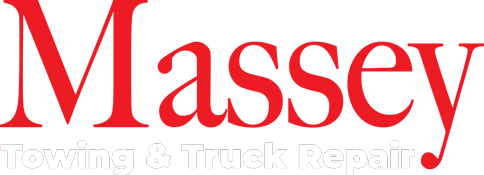Heavy duty towing engines are the unsung heroes of the transportation and recovery industry. They provide the raw power and reliability needed to haul massive loads and rescue stranded vehicles. In this comprehensive guide, we will explore the intricacies of heavy duty towing engines, delving into their design, capabilities, and maintenance requirements. From understanding the fundamentals of heavy duty engines to maximizing the performance of heavy duty tow trucks, we will cover everything you need to know to navigate the world of towing heavy duty vehicles.
Table of Contents
- What Makes A Heavy Duty Engine
- What To Look For In A Heavy Duty Tow Truck Engine
- How To Maintain An Engine For Towing Heavy Duty
- Best Heavy Duty Towing And Truck Repair In Dallas
What Makes A Heavy Duty Engine
Heavy duty towing engines are designed to meet the demanding requirements of high-load, continuous operation in the transportation, construction, and agriculture industries. They are optimized for performance, reliability, and efficiency under challenging conditions. Here’s a detailed look at their qualities based on power output, torque, fuel type, consumption, durability, and maintenance.
Power Output For Heavy Duty Truck Towing
Heavy duty towing engines are engineered to deliver high horsepower to handle heavy haul transports and demanding applications. They are capable of producing a wide range of power outputs, often exceeding hundreds or even thousands of horsepower, depending on their specific application.
These engines maintain their power output over a wide range of operating conditions, ensuring reliable performance even under extreme stress and environmental conditions.
Torque
One of the defining characteristics of heavy duty towing engines is their ability to generate high torque at low revolutions per minute (RPMs). This is crucial for applications requiring significant force to start moving heavy loads or to operate heavy machinery.
The torque curve of a heavy duty towing engine is designed to be broad and flat, providing a wide range of usable torque across various speeds, enhancing the engine’s versatility and efficiency in different working conditions.
Fuel Type And Consumption
Heavy duty engines can run on various fuel types, including diesel, natural gas, and, in some cases, biodiesel or hybrid systems. Diesel is the most common due to its energy density and efficiency.
These engines are engineered for optimal fuel efficiency, critical for operational cost-effectiveness, especially in industries where engines run for extended periods. Advanced technologies such as turbocharging, direct fuel injection, and exhaust gas recirculation are often employed to enhance fuel economy.
Modern heavy duty engines are also designed to meet strict emissions standards, employing advanced after-treatment systems like Selective Catalytic Reduction (SCR) and Diesel Particulate Filters (DPF) to reduce pollutants.
Durability And Maintenance
Heavy duty engines are built with robust materials and components designed to withstand extreme conditions and wear. They feature reinforced structures, high-quality metals, and heavy duty bearings and seals to extend their lifespan.
While built for durability, these engines do require regular maintenance to keep them operating efficiently. This includes routine checks and replacements of filters, fluids, and parts subject to wear and tear. Advanced engine designs often include features that facilitate easier maintenance and diagnostics to minimize downtime.
Despite the rigorous demands placed on them, heavy duty engines are designed with long service intervals in mind, reducing the frequency of maintenance and repair needs. This contributes to higher operational efficiency and lower total cost of ownership over the engine’s life.

What To Look For In A Heavy Duty Tow Truck Engine
When selecting a heavy duty engine, focusing on reliability, emission output, torque, and fuel efficiency is crucial for ensuring optimal performance, compliance with regulations, and cost-effectiveness. An example of when this would be important is during heavy haul load. Here’s what to look for in each of these areas.
Reliability For Heavy Duty Tow Trucks
Look for engines from manufacturers with a strong reputation for durability and dependability. Reliability is demonstrated by long service intervals and high uptime rates in real-world applications.
The engine should feature a design that’s built to withstand the rigors of heavy duty towing applications, including high-quality materials and components that are resistant to wear and tear.
A comprehensive warranty and accessible, reliable support services indicate the manufacturer’s confidence in its product and commitment to maintaining its performance over time.
Emission Output
Ensure the engine meets current emission standards relevant to your operation’s location, such as Euro VI in Europe or EPA standards in the United States. Compliance helps avoid regulatory issues and potential fines.
Look for engines equipped with modern emission control technologies, such as Diesel Particulate Filters (DPF), Selective Catalytic Reduction (SCR), and Exhaust Gas Recirculation (EGR), which reduce pollutants like NOx and particulate matter.
Considering future emission standards and regulations can be beneficial. An engine designed with the potential to meet more stringent future requirements offers longer-term viability.
Torque For Towing Heavy Duty
A quality heavy duty engine should provide high torque output even at low RPMs, which is crucial for heavy lifting or towing applications. This capability ensures that the engine can handle heavy loads without excessive strain.
The engine’s torque curve should be relatively flat, offering a wide range of torque across various speeds. This versatility is essential for diverse operating conditions and can enhance the vehicle’s drivability and responsiveness.
Fuel Efficiency
Engines that incorporate advanced fuel technologies, such as direct injection, turbocharging, and advanced combustion strategies, offer better fuel efficiency and reduce operational costs.
Evaluate the engine’s fuel consumption rates under typical operating conditions. Lower fuel consumption translates directly to lower operating costs and reduced environmental impact.
For some applications, engines that can run on alternative fuels such as natural gas or biodiesel might offer benefits in terms of fuel costs and emissions. Assess the availability and cost of these fuels in your area.

How To Maintain An Engine For Towing Heavy Duty
Maintaining an engine for towing heavy duty loads is crucial for several reasons, each relating to the performance, safety, and longevity of the vehicle, as well as cost efficiency.
Monitor Fluid Levels
Engine Oil: Regularly check the engine oil level using the dipstick, ensuring the engine is off and cool for an accurate reading. Top up the oil if it’s low, and replace it along with the oil filter according to the manufacturer’s recommended schedule. Use the specified type of oil to ensure optimal lubrication and protection.
Coolant: Check the coolant level in the overflow tank and radiator, ensuring the engine is cool before opening the radiator cap. Maintain the coolant level within the recommended range to prevent overheating. Periodically flush the cooling system and replace the coolant to prevent corrosion and buildup.
Transmission Fluid: For engines connected to a manual or automatic transmission, regularly check the transmission fluid level and condition. Look for signs of contamination or degradation, and replace the fluid as the manufacturer recommends.
Hydraulic and Brake Fluids: In applications involving hydraulic systems or heavy duty braking systems, regularly check these fluid levels and conditions, topping up or replacing fluids as necessary to maintain optimal performance and safety.
Fuel System Maintenance For Heavy Duty Towing
Fuel Filters: Replace fuel filters at the intervals specified by the engine manufacturer to prevent contaminants from entering the fuel system and causing damage or reduced performance.
Fuel Injectors: Keep the fuel injectors clean and free of deposits to ensure efficient fuel combustion. Consider using fuel additives designed to clean injectors if the engine is prone to buildup.
Fuel Quality: Use high-quality fuel that meets the engine manufacturer’s specifications to prevent contamination and ensure efficient combustion.
Cooling System
Regular Coolant Checks: Check the coolant level regularly and top it off if necessary. Maintaining the correct coolant level ensures effective heat dissipation from the engine.
Coolant Quality: Periodically check the condition of the coolant. It should be clean and free of contaminants. Over time, coolant can degrade and lose its cooling properties, leading to overheating and corrosion within the cooling system.
System Flush: Perform a coolant system flush at intervals recommended by the engine manufacturer. Flushing the system helps remove scale, rust, and other deposits that can build up over time and impair the cooling system’s efficiency.
Air Filtration
Regular Filter Inspection: Regularly inspect the air filter for signs of clogging or damage. A clogged air filter can restrict airflow to the engine, reducing performance and fuel efficiency.
Filter Replacement: Replace the air filter at intervals recommended by the engine manufacturer or more frequently in dusty or dirty operating environments. Using high-quality filters that meet or exceed OEM specifications is crucial for effective filtration.
Intake System Checks: Inspect the entire air intake system, including hoses and connections, for leaks, cracks, or loose components that could allow unfiltered air into the engine. Even a small leak can let harmful contaminants bypass the air filter and enter the engine.
Exhaust System And Emission Controls
Exhaust System Inspection: Regularly inspect the exhaust system for leaks, damage, or corrosion, which can affect engine performance and safety. Pay particular attention to exhaust manifolds, gaskets, and connections.
Emission Control Systems: Maintain emission control devices such as Diesel Particulate Filters (DPF), Exhaust Gas Recirculation (EGR) valves, and Selective Catalytic Reduction (SCR) systems according to the manufacturer’s guidelines. This may include regular cleaning, regeneration cycles for DPFs, and ensuring proper fluid levels for SCR systems.
Inspections For Heavy Duty Trucks
Visual Inspections: Regularly conduct visual inspections of the engine and associated components for signs of wear, leaks, or damage. Check hoses, belts, and connections for tightness and integrity.
Air Filters: Replace air filters at regular intervals or when visibly dirty to ensure adequate airflow to the engine, which is critical for efficient combustion and performance.
Cooling System: Inspect the cooling system components, including the radiator, hoses, and clamps, for leaks or damage. Ensure the fan and thermostat are functioning correctly to prevent overheating.
Scheduled Maintenance: Adhere to the manufacturer’s scheduled maintenance plan, which may include more detailed checks and replacements of specific components at set intervals.

Best Heavy Duty Towing And Truck Repair In Dallas
At Massey Towing Service, we are committed to providing reliable and efficient assistance to our valued customers whenever they encounter vehicle-related challenges. With our team of skilled professionals and a fleet of specialized towing vehicles, we offer a range of services to meet our customers’ needs promptly and effectively.

